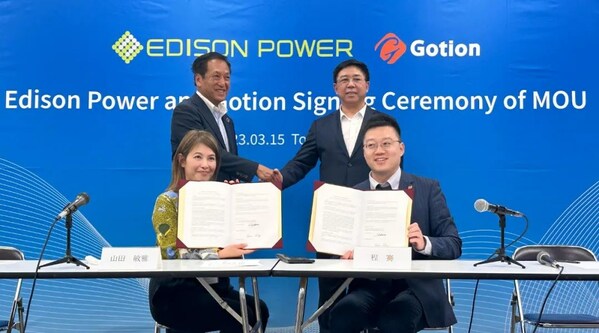
Chinese battery manufacturer Gotion High-Tech has continued recent moves into new markets across Asia, signing a deal with Japan’s Edison Power.
The two companies will target growing demand in the Japanese market for large-scale stationary battery energy storage systems (BESS), as well as developing a joint offering on battery recycling.
Renewable energy solutions company Edison Power will “introduce Gotion’s batteries into the Japanese market,” according to a press release, with an initial 1GWh planned sales target over the first year of cooperation, set to rise to 2GWh in the second year and expected to continue growing from there.
This comes following changes of Japanese energy market regulations in mid-2022 via the country’s Electricity Business Act, which now allows large-scale BESS assets to be categorised within the electricity generation business and apply for grid connection points.
While that has brought numerous entrants into the Japanese industry including private investors, according to various sources it is expected to take a year or two to stimulate market demand – the latter a stated aim of the government as it targets a national ‘Green Transformation’ (dubbed ‘GX’) and increase its share of renewable energy on the country’s grid network.
Japan wants more than half of its electricity to come from low carbon sources by the 2030 financial year, with 20% to 22% to come from nuclear, and between 36-38% from renewables.
Headquartered in Heifei, Anhui Province, Gotion is relatively new among the Tier 1 lithium battery makers in China being founded in 2006, but in 2015 became the first among them to go publicly listed.
It manufactures batteries for a range of applications that includes electric vehicles (EVs), stationary battery energy storage systems (BESS) and electric power transmission and distribution (T&D) equipment. That includes holding patents for battery cell materials and cell structural designs as well as battery management system (BMS), testing and evaluation, recycling technologies and more.
Gotion will supply battery cells, modules, BMS and other components, while Edison Power, a provider of renewable energy solutions since 1991, will look after customers, carry out engineering, procurement and construction (EPC) duties, operation and maintenance (O&M) and provide other various “market-side services”.
Edison Power’s website already features the company’s containerised BESS solution, including the legend ‘Powered by Gotion’. The system, which is being advertised as available from this year, uses Gotion lithium iron phosphate (LFP) cells, with 2.7MWh energy capacity per 20ft container.
Energy management system (EMS) and BMS are integrated into the containers. Edison Power lists two smaller-scale reference projects it has deployed in Japan, one of 300kWh and the other of 780kWh, as well as a 8MW/16MWh project in Singapore and a 10MW/10MWh project in the US, so far.
Electricity Business Act reforms set to open up Japanese market
The revision of electricity law, which is partly aimed at increasing liquidity in the Japanese energy sector and reducing voltality of spot prices, effectively lifts a “ban” on market transactions for BESS, Edison Power said on its website, opening up “a new energy business that has never existed before” in the country.
The two partners will also work to commercialise a lithium iron phosphate (LFP) battery recycling business.
In an article published in the most recent edition of our quarterly technical journal, PV Tech Power (Vol.34), analyst Chris Wilkinson at Rystad Energy looked at the present status of the solar PV market in Japan.
Solar PV will “undoubtedly” play a prominent role in addressing Japan’s energy security, energy supply and decarbonisation concerns, Wilkinson wrote. However, the scale-up of renewables faces several major challenges, and opening up the market to battery storage will be an important step to achieving those aims, Wilkinson wrote, along with other regulatory changes like a new ‘Feed-in Premium’ successor to the Feed-in Tariff, paying higher prices for energy inputted from renewables to the grid network during peak times.
“As a country with some of the most densely populated cities in the world and a firm commitment on supplying electricity from renewable sources, the solar industry in Japan has large potential,” Rystad’s Chris Wilkinson wrote.
“To fulfil this potential and in order to significantly reduce its current reliance on foreign fossil fuel imports, a fully developed BESS industry will be necessary to provide developers the flexibility they require to avoid curtailment, earn revenue and further promote development of not only solar but all renewables.”
Gotion meanwhile recently broke ground on Vietnam’s first-ever LFP cell factory, and is in a joint venture (JV) to explore building out production facilities in Thailand. In the US, the company signed a battery storage supply deal with US renewables platform Borrego last September.